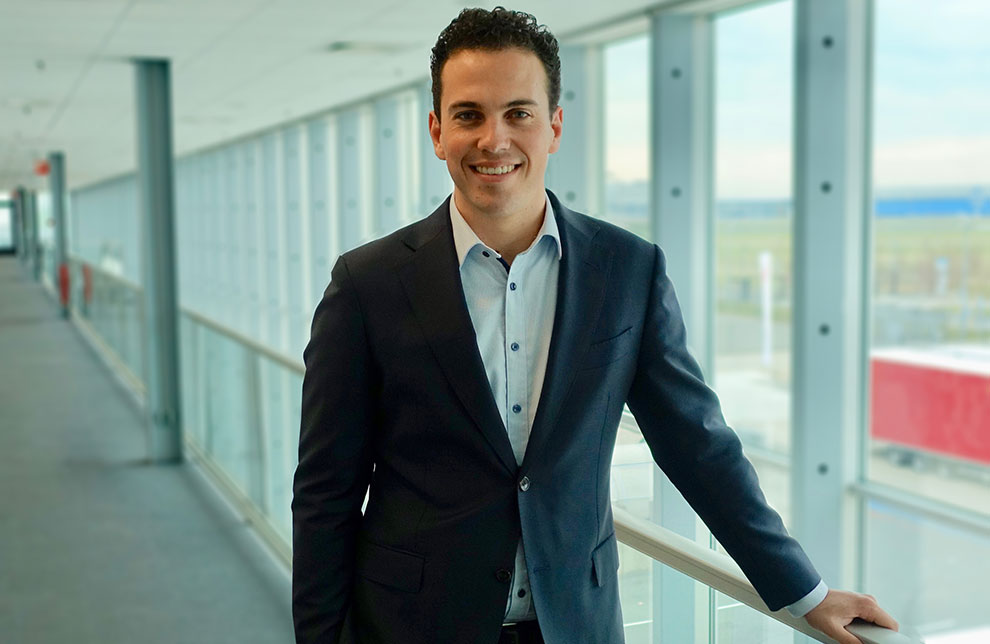The future of air cargo by the next generation: The next generation
The future of air cargo in the 21st century has become a hot topic of discussion in recent months, as technologies evolve, and companies look to recruit more young people to the industry. So, what does the future of air cargo look like? What changes are required? And who are the next generation of air cargo professionals?

Thierry Huizing, Project Manager, Swissport Amsterdam B.V., is 29-years-old, and started his career in air cargo four years ago at Air Cargo Netherlands, before joining Swissport two years ago.
Huizing has been instrumental in implementing a self-service kiosk at Amsterdam Airport Schiphol, and believes industry processes must be modernised in order to move air freight forward and remain competitive.
“In the last 40 years, there has not been much change in air cargo processes, apart from aircraft becoming more efficient,” said Huizing.
“But change has to happen, and we have to be proactive by introducing more co-operation along the supply chain, otherwise we will lose the market to alternative transportation modes.
“We can’t sit back and relax - we have to be the frontrunner, and it is now time for the new generation to stand up and contribute their value.
“In reality, air cargo is currently one of the most expensive modes of transport, so the customer needs a high-level of service to make it worth the money, and currently, a lack of transparency is damaging our industry.”
Change can be intimidating, but for the next generation of air cargo professionals like Huizing, it’s considered as an inevitable next step to avoid being left behind.
“Nowadays, most forwarding agents in the air cargo supply chain use digital technology, and if we shared the data, we could optimise our internal processes to deliver shipments faster and inform customers about possible delays,” he added.
“The parcel delivery industry offers a product quite similar to the air cargo business, but they seem to be able to deliver more transparency because they have big networks across the globe and provide detailed information about where a package is.
“They are optimising their routing and are able to share data between their offices across the globe, which is what we need to offer to enforce our position.”

Similarly, 31-year-old Ouke Koet, Manager Import and Transit Perishables, Kuehne + Nagel N.V., joined the air cargo industry after completing an internship scheme at Amsterdam Airport Schiphol during university, before starting his career as a ground handler.
Koet is calling for the industry to embrace new technologies such as Cloud platforms, data sharing, and drones to help improve transport solutions, and ensure air cargo remains a competitive transportation option.
“The air cargo industry is still quite conservative through its use of paper documentation in the supply chain,” said Koet.
“The way we transport goods has not evolved since the 1970s and 1980s, but some passenger airlines now use robotics and do not need manpower for certain tasks anymore, whereas in air freight we still do everything manually, so the entire process needs to be evolved.
“Customers now expect automation and data sharing - they want to know where their shipment is, what condition it is in, and how long it will take to arrive.
“Even when ordering a pizza, customers receive a status update from the delivery company, and we have to do the same.”
In order to implement such changes, Koet believes new styles of management will be required throughout the air cargo industry, as well as a willingness to collaborate and innovate with competitors.
“There are new elements of competition that are emerging that the more traditional companies should be aware of, such as data sharing and analysis,” he added.
“We need to modernise and get ready for changes in the future by embracing technology, sharing data, and attracting new people to the industry.
“I would highly recommend a career in air cargo to other people because I love the product, the international atmosphere, and the opportunities that are available, but there is so more to be gained.
“Everything is possible with the right attitude.”